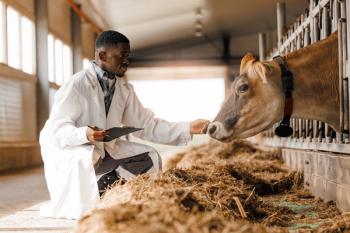
Hand off tasks with confidence, trust staff abilities, experts say
Social skills, management abilities help ease way; lean on experienced technicians for support; abandon do-it-yourself attitudes in the workplace
Social skills, management abilities help ease way; lean on experiencedtechnicians for support; abandon do-it-yourself attitudes in the workplace
Montclair, N.J. -As a new graduate, Dr. Nancy Katz remembers feelingunsure of herself with clients. New to the team and her surroundings, sheoften questioned her own judgment and expertise.
Self-doubt made it tough to delegate duties, she says, especially becauseas a student, she became accustomed to relying on herself. Nowadays, Katz,a New Jersey practice owner, recognizes the impact her good social skillsplayed in learning to manage and interact with people, which not only makesit easier to hand off tasks, but to ask for suggestions and expertise.
Her advice: Have confidence not only in yourself but the experiencedtechnicians who can ease the transition from student to practitioner.
"You have to realize you can't do everything yourself, even if youwant to," she says. "If you're at a baseline veterinary ability,you'll be fine to delegate tasks, but social skills matter, too."
Play on the team
Reluctance to delegate tasks while lacking confidence not only plaguesnew graduates but also long-time veterinarians, says Joe McManus, TuftsUniversity College of Veterinary Medicine's associate dean for administrationand finance. When joining a new hospital, he says, think of it as a team.Trust co-workers and colleagues, he says. Have confidence in their abilitiesto do necessary tasks.
"How early you realize this makes a big difference on how successfulyou'll be," McManus says. "Understand and respect the skills ofother team members, even if they don't have a DVM degree. That's the firststep toward learning how not to do everything yourself."
Additional tips
- Recognize the financial strings attached to delegating.
It's cost-effective to delegate duties and essential to running a financially successful practice, McManus says.
"You should only be doing what a veterinary degree requires you to do," he says. "The technician can be out there earning the practice revenue, too."
- Use your time in school wisely.
"Learn from faculty behaviors and external rotations and pattern your behavior after veterinarians you see delegating well," McManus says. "This will teach you more than any book and save you lots of agony."
- Organization is paramount.
McManus advises organizing your time and work ethic to effectively delegate to others.
"In order to be economically successful, the veterinarian needs to be well organized and multitask between cases in an efficient way," he says.
- Provide appropriate recognition.
"Thank your co-workers for the things they do for you," he says. "The recognition brings both psychic and financial benefits, which is especially true for technicians who aren't always paid well."
- Ask practice owners to devise delegation boundaries.
"The orientation of new graduates should explicitly include a discussion of these boundaries," McManus says. "It's their job to educate the new practitioner of the skill level ability in the hospital.
"In an ideal world, a lot of this orientation stuff gets originated by the owner, but I tell my students they need to ask for what they need. They need to know who the experienced technicians are and likely their skills will be better than the veterinarian just coming out of veterinary school. That's part of team communication, and it fosters veterinarian growth."
Newsletter
From exam room tips to practice management insights, get trusted veterinary news delivered straight to your inbox—subscribe to dvm360.






